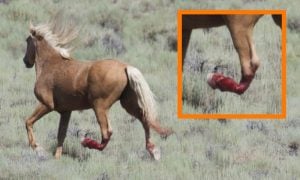Grassroots action from animal advocates as well as local laws and resolutions may help lead to improved statewide protections for animals, a new report from nonprofit Faunalytics shows.
Faunalytics analyzed legislation from the past 20 years and found that states were more likely to pass laws to protect animals when numerous cities across the state had enacted similar measures through local laws or expressed support through non-binding resolutions.
California’s ban on retail sales of dogs and puppies from inhumane puppy mills was one example, with proposals for the statewide legislation referencing 33 other municipalities with bans on the local level and a Los Angeles ordinance that could act as a framework, according to the report.
“Passing laws at the local level allows people to help animals in their communities, while providing a model for other cities and jurisdictions,” Faunalytics noted. “Local laws can also create momentum for statewide initiatives, which demonstrates a state’s strong commitment to protecting animals.”
But often local actions run into formidable barriers in the legal process. The report noted the No. 1 obstacle for local activists was pre-emption – or the laws of a higher-level government, like a state, blocking desired actions of a lower-level government, like a city council or county commission.
Pre-emption proved particularly problematic for farmed animal protections, with many states — including Alabama, Georgia, Oklahoma, and South Carolina — prohibiting local governments from creating laws related to animal husbandry.
For municipal governments whose hands are statutorily tied but still want to express their support for increased animal protections, Faunalytics recommends passing non-binding resolutions.
The report said that while research on the impact of resolutions is limited, evidence does show they can help.
Local resolutions may have helped lead to California’s ban on keeping egg-laying hens caged. Prior to that ban, the city of San Francisco submitted a resolution, citing other resolutions in Berkeley and West Hollywood, supporting a state-wide ban, according to the Faunalytics report.
Similarly, in Massachusetts, one of the states that bans or restricts veal crates, the city of Brookline passed a resolution against the cruel contraptions that referenced similar bans in seven other states, according to the report.
The report cautions that local actions can sometimes backfire, such as when the city of Phoenix, Arizona, and the Humane Society of the United States (HSUS) fought to uphold a city ordinance that prevented puppy mill sales at pet stores in city limits. While the local court agreed that the ordinance didn’t discriminate against out-of-state pet dealers, a pet store acting as the plaintiff appealed to the Ninth Circuit Court of Appeals. The appeal led to an enacted Senate bill that permitted sales from commercial breeders who reportedly met certain criteria — and effectively prevented Phoenix from enforcing its preferred protections for dogs.
What are caring animal advocates to do when faced with this political quagmire? The Faunalytics report issues several recommendations:
- Help create strong animal protection laws in your community by talking with your local representatives.
- Make state legislators aware of local ordinances supporting any state-wide changes you’d like to see.
- Provide information to people testifying in support of state bills about local ordinances and initiatives to establish a public will for change.
- Be persistent.
Advocates need to be prepared to fight for animals in the long-haul, the report notes.
“It can take multiple attempts for a state bill to pass, so a single failure doesn’t mean that efforts were in vain,” the report states.
The report covers the legislative landscape across several specific animal welfare issues, including retail sales of dogs from puppy mills and bans on foie gras, fur, declawing, battery cages, and gestation and veal crates. The report also looks at legislative measures that would require governments to purchase plant-based foods or reduce meat consumption citywide. You can find more detail on those specific initiatives by reading the full report, available here.
So don’t wait! Talk to your local policymakers about banning fur or banning the sale of dogs from pet stores. Your action and persistence can help save lives.








